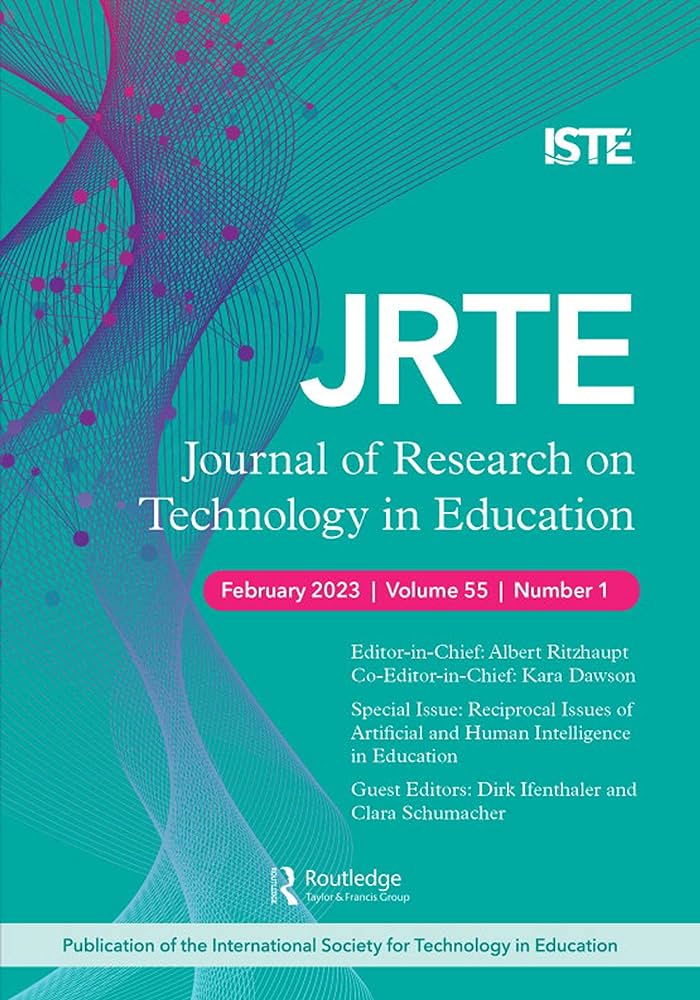Insights on information literacy from social studies classrooms in the southeast
IF 5
2区 教育学
Q1 Social Sciences
Journal of Research on Technology in Education
Pub Date : 2023-10-09
DOI:10.1080/15391523.2023.2264965
引用次数: 1
Abstract
AbstractLiving and learning in the United States in 2023 is different than it was decades ago. The proliferation of mis/disinformation vis-a-vis digital means is causing “truth decay,” with an increase in disagreement amongst citizens about what is opinion and fact. Such disagreements constrain opportunities for healthy democratic dialogue. To repair and rebuild dialogue, citizens need information literacy. This article draws upon qualitative data from four social studies eleventh grade classrooms, including teacher and student interviews and focus groups, to better understand the contemporary landscape of teaching and learning information literacy in today’s digital age. Analysis of findings speak to five interrelated insights from practice within the information literacy teaching and learning landscape of one high school context in the southeast of the United States.Keywords: Information literacyK-12 social studiesinstructional practicecivic educationresearch-practice partnerships Disclosure statementNo potential conflict of interest was reported by the author(s).Additional informationNotes on contributorsDaniela DiGiacomoDaniela Kruel DiGiacomo, PhD, is an Assistant Professor at the University of Kentucky in the School of Information Science. With a background in teaching and social work, DiGiacomo’s program of research currently focuses on how to design formal and informal learning settings in ways that support and extend young people’s lived experiences, interests, and expertise.Carly MuettertiesCarly Muetterties, PhD, is the co-founder of CommonGoodEd.com. A former high school social studies teacher and Managing Editor for C3Teachers, Carly collaborates with teachers, schools/districts, and educational organizations in designing inquiry learning experiences to create a culture of inquiry in their classrooms.Caitlin TaylorCaitlin Taylor, MSLS, is a recent graduate of the Library Science program from University of Kentucky’s School of Information Science. Her research interests center on information literacy instruction, particularly at the higher education level.东南地区社会学科课堂对信息素养的洞察
摘要2023年美国的生活和学习与几十年前不同。与数字手段相对的错误/虚假信息的扩散正在导致“真相衰退”,公民对什么是观点和事实的分歧越来越大。这种分歧限制了健康民主对话的机会。为了修复和重建对话,公民需要信息素养。本文利用来自四所十一年级社会研究教室的定性数据,包括教师和学生访谈和焦点小组,以更好地了解当今数字时代教学和学习信息素养的当代景观。对调查结果的分析从美国东南部一所高中的信息素养教学和学习环境的实践中得出了五个相互关联的见解。关键词:信息素养k -12社会学教学实践教育研究实践伙伴关系披露声明作者未报告潜在的利益冲突。作者简介daniela DiGiacomo daniela Kruel DiGiacomo博士是肯塔基大学信息科学学院的助理教授。凭借教学和社会工作的背景,DiGiacomo的研究项目目前专注于如何设计正式和非正式的学习环境,以支持和扩展年轻人的生活经验、兴趣和专业知识。Carly Muetterties博士是CommonGoodEd.com的联合创始人。作为一名前高中社会研究教师和C3Teachers的执行编辑,卡莉与教师、学校/地区和教育机构合作,设计探究学习体验,在他们的课堂上创造一种探究文化。凯特琳·泰勒,MSLS,是肯塔基大学信息科学学院图书馆学专业的应届毕业生。她的研究兴趣集中在信息素养教学,特别是在高等教育水平。
本文章由计算机程序翻译,如有差异,请以英文原文为准。
求助全文
约1分钟内获得全文
求助全文
来源期刊

Journal of Research on Technology in Education
EDUCATION & EDUCATIONAL RESEARCH-
CiteScore
11.70
自引率
5.90%
发文量
43
期刊介绍:
The Journal of Research on Technology in Education (JRTE) is a premier source for high-quality, peer-reviewed research that defines the state of the art, and future horizons, of teaching and learning with technology. The terms "education" and "technology" are broadly defined. Education is inclusive of formal educational environments ranging from PK-12 to higher education, and informal learning environments, such as museums, community centers, and after-school programs. Technology refers to both software and hardware innovations, and more broadly, the application of technological processes to education.
 求助内容:
求助内容: 应助结果提醒方式:
应助结果提醒方式:


